Services
CORE Forensics: Your Trusted Partner for Comprehensive Forensic Roof Testing Services
At CORE Forensics, we understand the importance of maintaining the health and longevity of your roofing system. That’s why we offer a range of comprehensive forensic roof testing services that help our clients identify any underlying damage or durability issues in their roofing systems. Our commitment to accuracy, reliability, and excellent customer service sets us apart from our competitors.
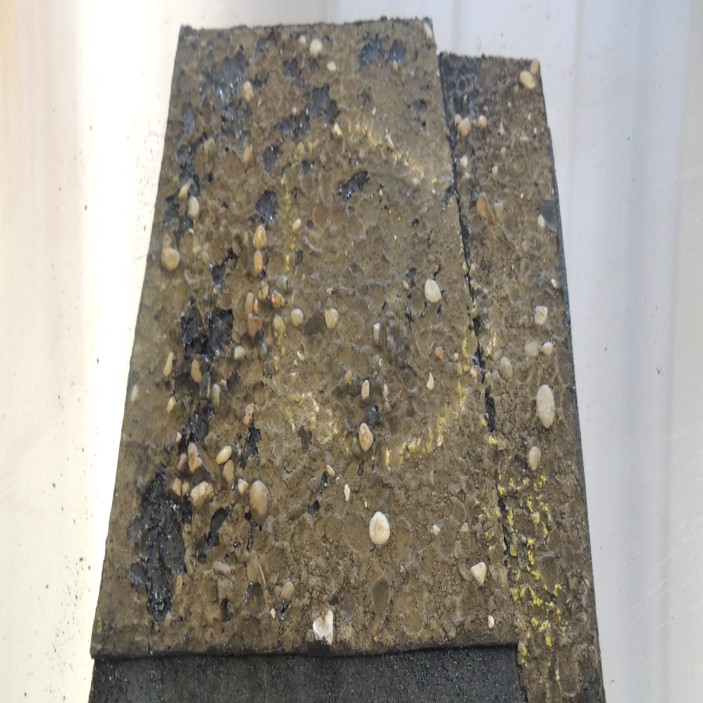
Delamination Tests
Our delamination testing is designed to identify any issues with the adhesion between the roofing plies. Our team uses specialized equipment and techniques to evaluate the roofing system’s condition and identify any areas where the plies may be separating.
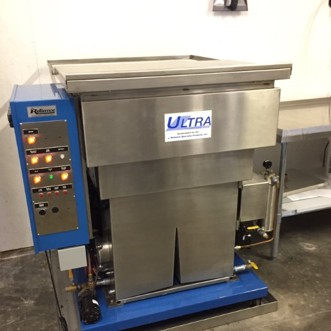
Desaturation Tests
Desaturation testing is designed to determine if the fiberglass mats of the built-up roofing system have been compromised by hailstone impacts. We use a vapor degreaser to desaturate the plies and inspect the fiberglass mats for fractures that are unable to be seen prior to the desaturation process.
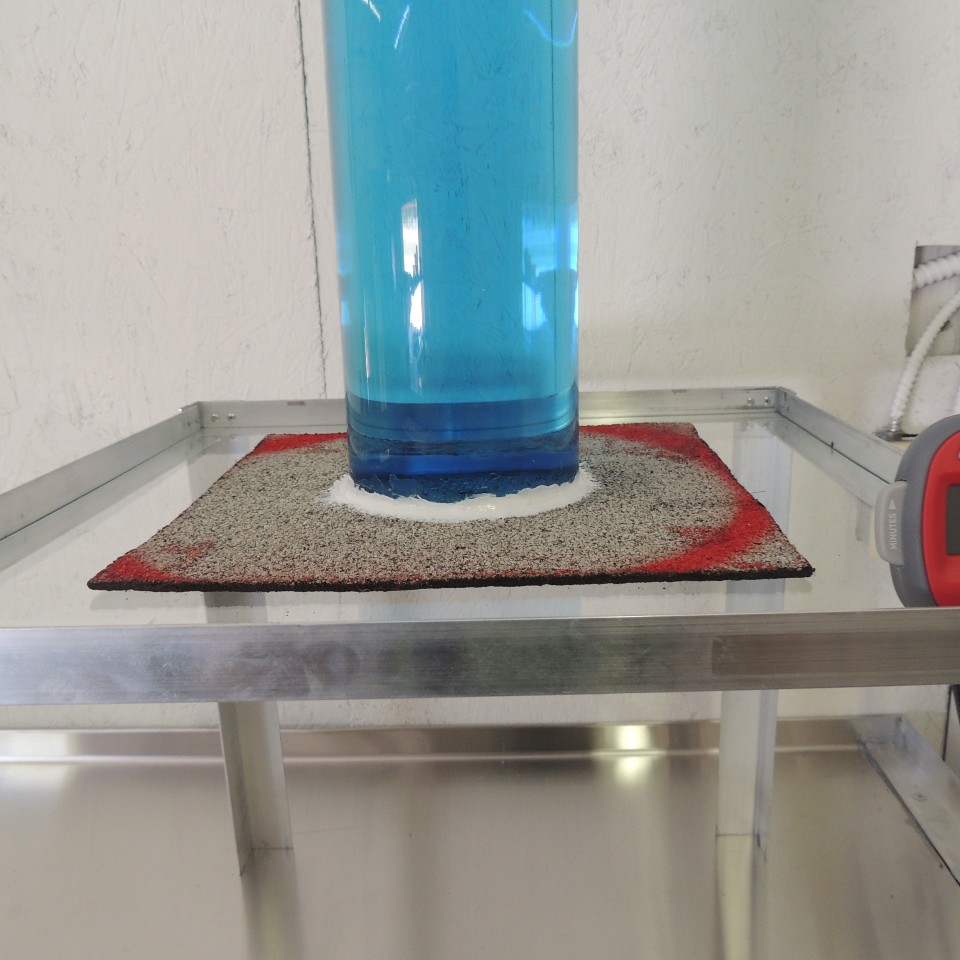
Water Column Tests
Water column testing is used to evaluate the water resistance of the roofing system. Our team uses specialized equipment and techniques to simulate rainfall and evaluate the ability of the roofing system to withstand water intrusion.
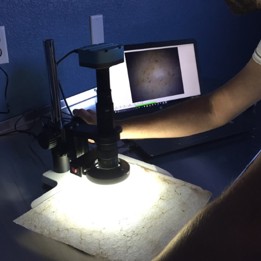
Microscopic Evaluations
Our microscopic evaluations are used to identify any underlying issues with the roofing system that may not be visible to the naked eye. We use high-powered microscopes to evaluate the condition of the roofing materials and identify any areas of concern.
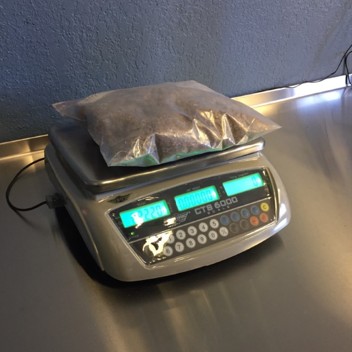
Gravimetric Testing
Gravimetric testing is used to evaluate the thickness of the roofing materials and ensure that they meet industry standards. Our team uses specialized equipment and techniques to measure the thickness of the roofing materials and identify any areas where the materials may be thinning or wearing down.
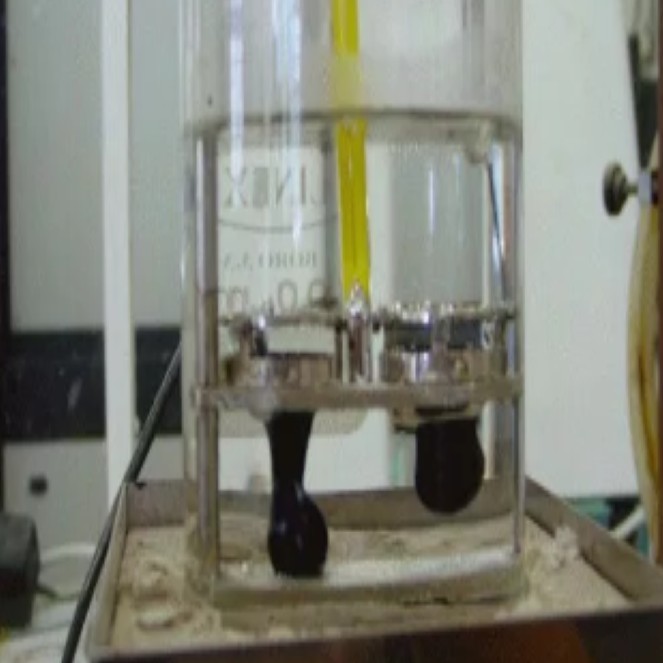
Sample Viscosity Testing
Our sample viscosity testing is used to evaluate the viscosity of the roofing materials and ensure that they meet industry standards. We use specialized equipment and techniques to measure the viscosity of the roofing materials and identify any areas where the materials may be too thin or too thick.
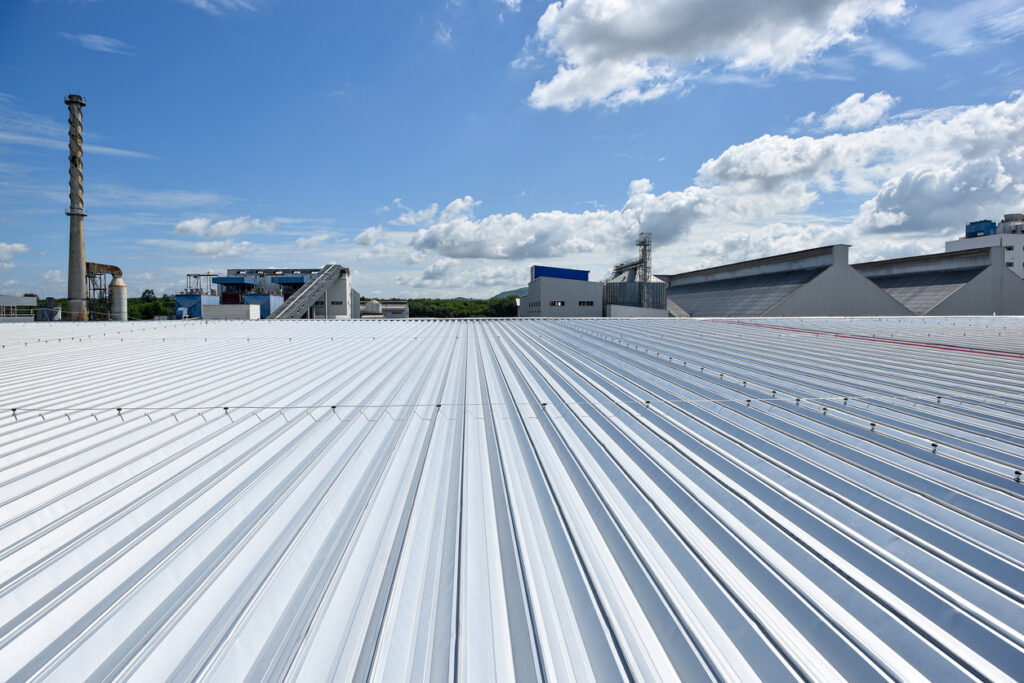
Wind Uplift Testing
CORE Forensics offers wind uplift testing for roofing systems using advanced machines to simulate high wind conditions, assessing their resistance and identifying vulnerabilities to enhance safety and compliance with building codes.
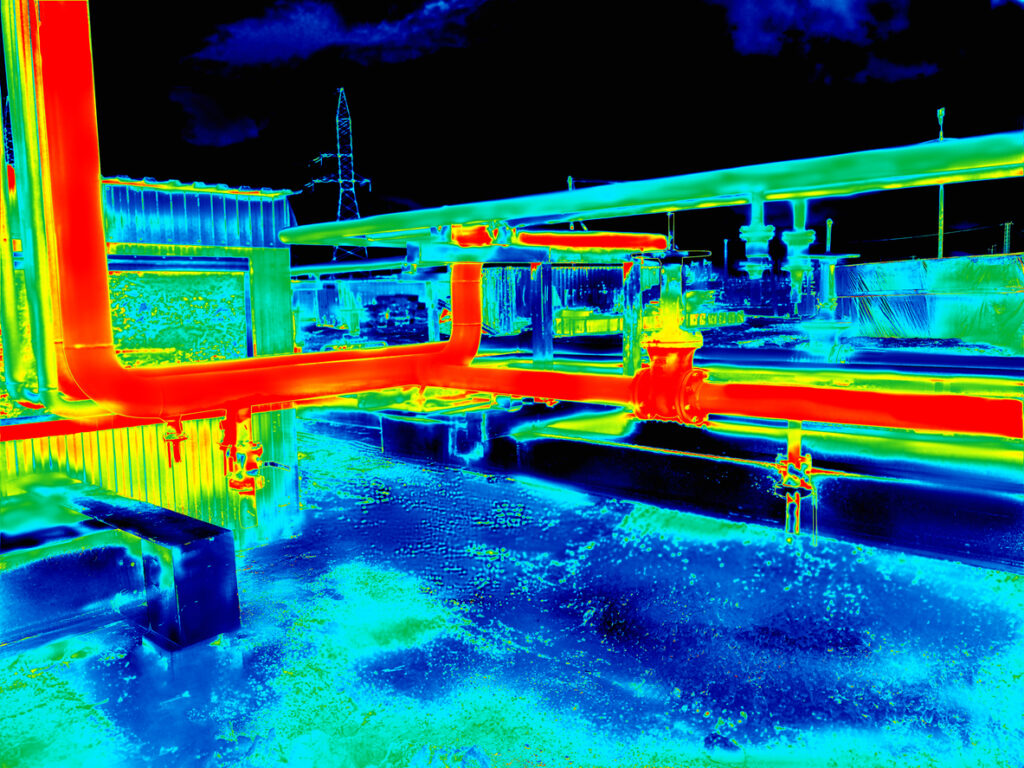
Infrared Testing Services
CORE Forensics provides infrared testing services for roofing systems, using thermal imaging to detect moisture, insulation issues, and assess overall roof integrity efficiently and non-destructively, enhancing maintenance and preventing costly damage.
Our Commitment to You
At CORE Forensics, we are committed to providing our clients with comprehensive forensic roof testing services that help them maintain the health and longevity of their roofing systems. Whether you’re dealing with hail damage, wind damage, or other types of roofing issues, our team has the expertise and knowledge needed to identify the underlying issues and provide recommendations for repairs. Contact us today to learn more about our services and how we can help you with your roofing needs.
Roof Types we Specialize in
We perform our forensic roof testing services on many different types of commercial roof systems. This is why we make it a priority that our staff is highly knowledgeable on the installation and composition of these roof types.
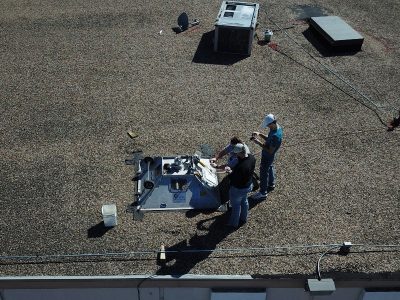
BUR
Built-up roofing, also called BUR or BURG, is the most common roofing material used on low-slope roofs.
It is composed of alternating layers of reinforcing fabric and bitumen (asphalt) and is finished with a top layer of aggregate, such as stone or gravel.
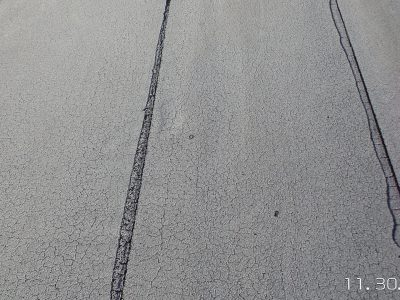
Modified Bitumen
Modified bitumen is widely considered to be the new and improved alternative to BUR roofing system. It is made from asphalt and plastic/rubber polymers.
Modified bitumen roof systems are extremely resistant to tears and are energy efficient.
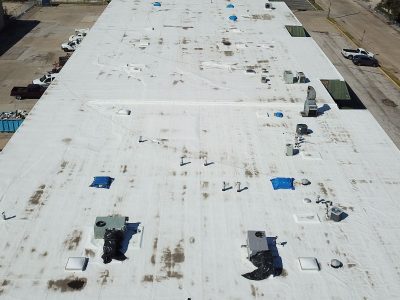
TPO
TPO is a single-ply roofing system made from thermoplastic polyolefin and is almost exclusively used on flat and low-slope roofs.
In recent years TPO roof systems have become a popular choice among commercial roofing systems due to their longevity, sustainability and their energy-efficient characteristics.
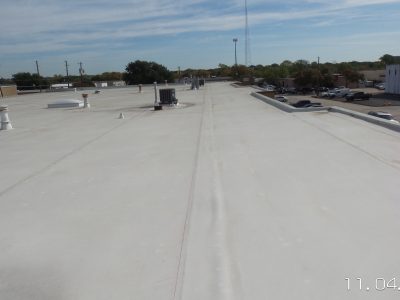
PVC
Like TPO, PVC is a single-ply roofing system used for flat and low-slope roofs. It is made from polyvinyl chloride and has been used for over 30 years.
PVC roofs are highly resistant to chemical weathering which is why they are a common choice for commercial roofs where there is exposure to grease and other harsh chemicals.
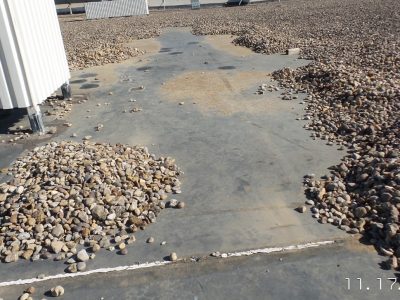
EPDM
EPDM is an extremely durable synthetic rubber roofing membrane (ethylene propylene diene terpolymer) widely used in low-slope buildings worldwide.
Its two primary components, ethylene and propylene, are derived from oil and natural gas and can be applied loose with ballast or fully adhered.
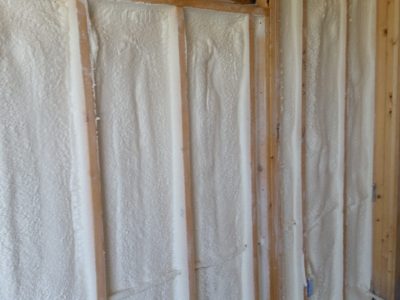
Spray Foam (SPF)
When SPF (spray on polyurethane) roofing is applied as a 1.5″ lift, it expands into a rigid foam and creates a durable watertight blanket.
This material not only adds structural strength to your roof but makes it resistant to extreme weather conditions and acts as a layer of insulation.
